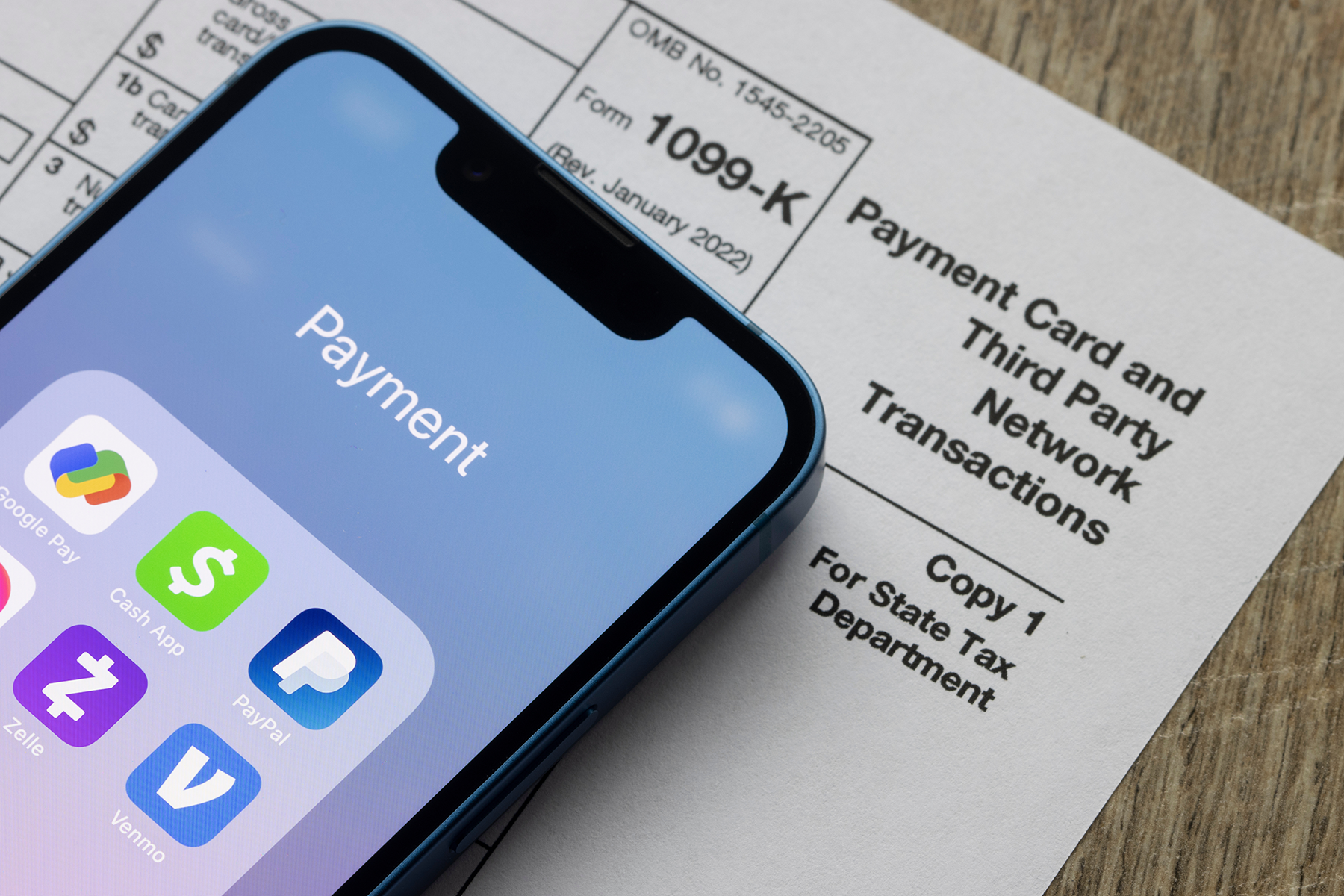1099K Change for 2023
The IRS issued a press release on October 24, 2022 reminding service providers and other business owners that they may receive a form 1099-K for sales in excess of $600. Third-party payment processors such as PayPal and Stripe will issue 1099-Ks to their customers in early 2023 for sales that exceed $600, regardless of the number of transactions. This will impact tax returns filed in 2023 for Tax Year 2022.
Prior to 2022, third-party payment processors issued form 1099-K if the total number of transactions exceeded 200 AND the total amount of the transactions exceeded $20,000 for businesses. Here are some examples.
Scenario 1: A provider had 3 transactions totaling $25,000. A 1099-K was not issued, because the number of transactions did not exceed 200.
Scenario 2: A provider had 1000 transactions, but the total sales amount was $19,000. A 1099-K was not issued, because even though the number of transactions exceeded 200, the amount of sales was less than $20,000.

As taxpayers became aware of the reporting requirements, many did not report the income on their taxes. There were also taxpayers that used more than one third party processor in order to avoid reporting requirements. This act is called structuring, and it’s illegal.
The American Rescue Plan Act of 2021 (ARPA) lowered the reporting threshold for third-party networks that process payments for those doing business. Now a single transaction exceeding $600 can trigger a 1099-K. But, why?
Who is TIGTA?
While the media will have you believe that all of this happened because of a President and his administration, this change in reporting was coming regardless of who was in office. Here’s why:
On December 30, 2020, The Treasury Inspector General for Tax Administration (TIGTA) released a report: Billions in Potential Taxes Went Unaddressed From Unfiled Returns and Underreported Income by Taxpayers That Received Form 1099-K Income. TIGTA is an independent organization that provides oversight of the IRS.
TIGTA reviewed 2017 tax returns to compile their report. The report states, “TIGTA identified 314,586 business taxpayers with $335.5 billion in Form 1099-K income that appeared to have a filing obligation, but were not identified as nonfilers by the IRS.” …”TIGTA identified a significant number (325,060 business non-filers and 103,991 individual non-filers with $203 billion and $3 billion in Form 1099-K income, respectively) that were not selected to be worked.”
Essentially TIGTA revealed the abuse of 1099-K reporting requirements and recommended the IRS fix it. That’s why the law changed. It had nothing to do with the President.
What about the Zelle “Loophole”?
After ARPA 2021 was released, there were several social media posts created about the ‘Zelle Loophole’. Zelle is a money transfer application that allows you to transfer money directly from one bank to another. It is not a third-party payment processor. Because of that, Zelle currently has no reporting requirements.
Social media influencers were suggesting that using the “Zelle Loophole” was a legal way to circumvent the 1099-K reporting requirements. This is absolutely and unequivocally FALSE.
Using Zelle to earn income and not report it is tax evasion - the illegal non-payment or under-payment of taxes, such as by declaring less income, profits or gains than the amounts actually earned, or by overstating deductions. Zelle’s terms of service also states: “We only grant you a limited revocable license to use the Site for your own non-commercial use subject to rules and limitations.” In other words, you’re not supposed to use it to receive business payments.
Reputable sites were purporting the myth that the IRS was going to “start” taxing money that wasn’t previously taxable. That is inherently false. Do not confuse ‘third party reporting requirements’ with your responsibility to report your income. Section 61(a) of the Internal Revenue Code defines gross income as income from whatever source derived, including (but not limited to) “compensation for services, including fees, commissions, fringe benefits, and similar items.” I.R.C. § 61(a)(1). All income is taxable unless there is a specific provision that says it’s not. You’re even required to report stolen money!
Prior to 2022, you were required to report your income, even though third party processors were not required to issue 1099-Ks. The requirement for the taxpayer to report their income is not new. The change in third party reporting requirements is what’s new.
States were already making the change
There were a few states that already lowered the threshold for reporting. Maryland, Massachusetts, Virginia, Vermont, and District of Columbia had already reduced their reporting requirement to $600 in previous years. There are other states that had lower reporting requirements, as well. Now it will be reported uniformly in all states.
If you have previously avoided reporting your income, we highly encourage you to amend those returns to accurately reflect what you earned. Give us a call if you need help: 877.482.9411.

